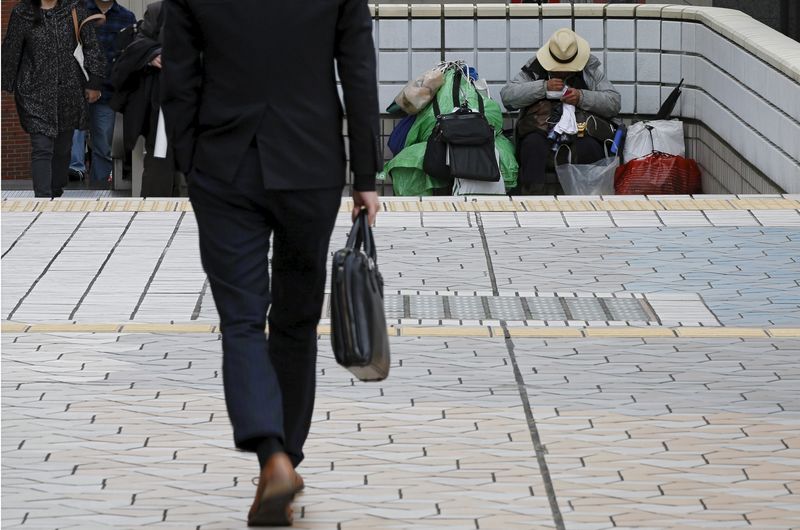By Stanley White and Izumi Nakagawa
TOKYO (Reuters) - The head of an influential Japanese business lobby won't pass on the government's requests to its members to raise salaries next year, a worrying sign that real wages may not increase fast enough to boost consumption in the country.
Higher wages are crucial to policymakers' efforts to break a decades-long cycle of weak growth and deflation. Prime Minister Shinzo Abe has won modest wage gains from the largest firms, but this has been slow to filter through the economy.
Renewed concern about a slowdown in emerging markets and weak overseas demand could make more companies reluctant to raise wages. This could in turn scupper the government's efforts to increase consumption and put the Bank of Japan's 2 percent inflation target out of reach.
"The government is hoping for higher wages, but the Keizai Doyukai, as an organization that corporate executives personally belong to, is not going to tell its members what to do," said Yoshimitsu Kobayashi, chairman of the Keizai Doyukai, which regularly participates in the government's corporate policy panels and is one of Japan's top three business lobbies.
"Companies that don't have money obviously won't raise wages."
Since taking office in late 2012, Abe has repeatedly asked big business lobbies to encourage their members to raise wages at annual spring salary negotiations with unions.
Abe will also raise the minimum wage by about 3 percent from next fiscal year to encourage salaries to rise more broadly throughout the economy.
Many companies have enjoyed record profits recently, so there is room for these companies to offer their workers higher pay, Kobayashi said.
Japanese companies also have the funds needed to increase domestic investment in plants, research and develop their workers' skills, he said.
However, around 65 percent of people work at small and medium-sized enterprises, many of which are losing money and are therefore unlikely to raise salaries or spend extra money on training employees.
Another problem is Japanese labour unions tend to make very modest requests for higher pay and do not pressure management as much as labour unions in other countries.
Adding to these concerns was data for industrial output released Monday, which fell in November for the first time in three months in a sign that weak overseas demand could hurt Japan's economy.
Government officials and members of the BOJ have said they want to see how much companies increase salaries by in the spring negotiations with labour unions next year.

A disappointing result could cast doubt over the government's economic policies and feed into pessimism that consumer spending will not accelerate much next year.